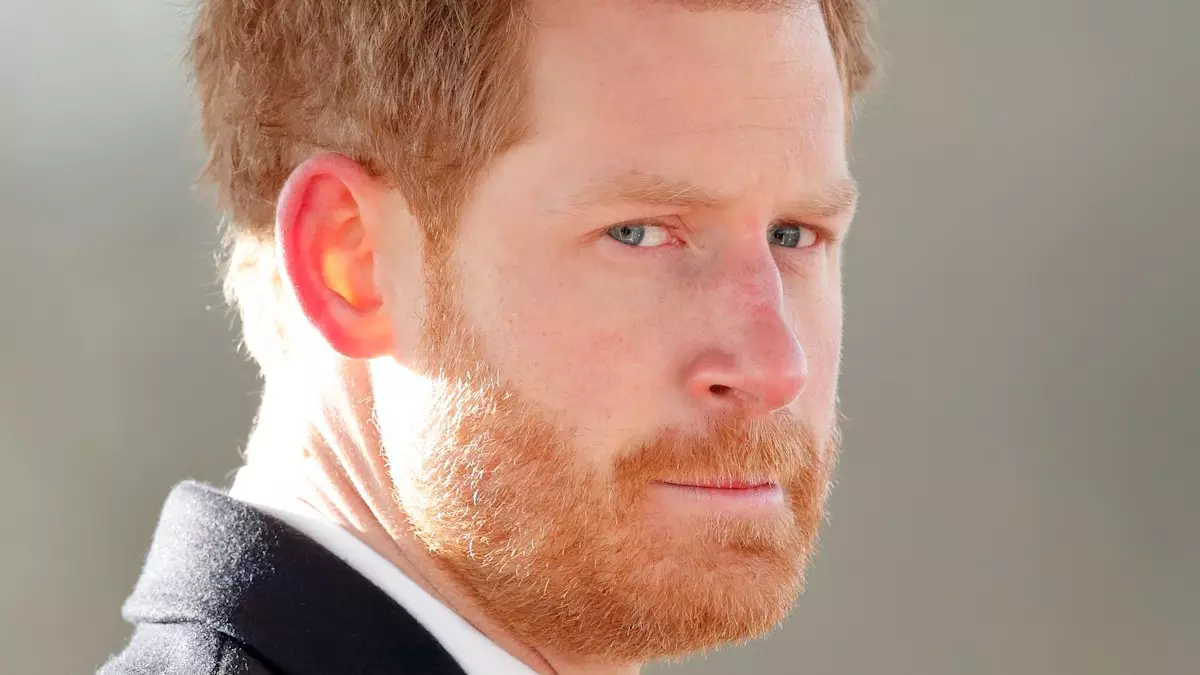The Duke of Sussex, Prince Harry, is making headlines once again as he prepares for an imminent legal showdown in the UK against News Group Newspapers (NGN), the publisher behind The Sun. This crucial trial is scheduled for next month and is expected to delve deep into serious allegations surrounding unlawful information-gathering practices, which the Duke claims have infringed upon his privacy and the privacy of others. The attention surrounding this case not only highlights royal legal issues but also brings forth important discussions around the safety and well-being of public figures.
At the heart of this trial lies a potent accusation from Prince Harry and former Labour deputy leader, Lord Tom Watson. They allege that NGN engaged in widespread unlawful practices to gather private information, including phone tapping and other invasive measures. These grave allegations serve as a stark reminder of the ongoing battle between public figures seeking accountability and media outlets accused of overstepping ethical boundaries in pursuit of sensationalist stories. Having previously faced legal issues stemming from similar claims in 2023 against the Mirror Group Newspapers, this latest case emphasizes Harry’s commitment to combat what he perceives as a toxic culture within certain media sectors.
The proceedings are projected to unfold over the course of about seven weeks. During this time, Harry will be subjected to cross-examination by the barristers representing the newspaper group. This setup creates a charged atmosphere akin to a dramatic courtroom saga, as both sides prepare to unveil intricate layers of testimony and exhibit substantive evidence. What is especially compelling about this trial is Harry’s vocal assertion of accountability, a theme he alluded to during a summit in New York where he noted that many individuals had settled their claims against NGN out of necessity, thus underscoring a systemic concern about the media’s practices.
As Prince Harry prepares to face the music in court, his personal life adds another layer of complexity to the situation. Reports indicate that his wife, Meghan Markle, will likely stay in Montecito, California, rather than accompany him on this trip. This choice is deeply rooted in the couple’s concerns over security. Following their relocation to the United States in 2020, after stepping back from royal duties, both Harry and Meghan have struggled with navigating their safety, particularly during visits back to the UK.
Harry’s recent legal action against the Home Office concerning the level of taxpayer-funded security he is entitled to during his visits highlights these ongoing concerns. A prior judgment from the High Court upheld the government’s decision, determining that the change in Harry’s security provisions was not inherently unreasonable. This ruling leaves Harry grappling with fundamental issues of both protection and his ties to the UK, leading to emotional reflections on his perceived detachment from his homeland.
The significance of this trial goes beyond just Prince Harry and his grievances; it brings to light a broader conversation regarding the rights of public figures in an era where privacy is often sacrificed for profit. The media plays a pivotal role in shaping narratives, and this case serves as a potential turning point that could redefine approaches to journalistic ethics and accountability. It also raises questions about how the public responds to revelations concerning the personal lives of public figures, particularly those who are already subject to scrutiny due to their status.
The backdrop of Harry’s emotional statement regarding his family’s connection to the UK adds an intensely human element to these proceedings. He articulates a deep desire for his children to understand their British heritage, emphasizing the emotional toll that the security situation has imposed on their relationship with the country. Statements like these invite us to consider not just the legal ramifications, but the personal consequences that arise when public lives clash with the media’s relentless pursuit of information.
As the stage is set for this high-profile trial, observers will be keenly watching both the proceedings and the implications that arise from them. Whether Prince Harry’s case leads to substantial changes in media practices remains to be seen, but it undoubtedly opens up discussions that could benefit future generations of public figures. The drive for accountability and the call for ethical practices in journalism resonate widely, especially in an age where personal privacy is increasingly under siege.
As Prince Harry takes a stand against perceived injustices, the reverberations of his actions may echo beyond the courtroom, influencing public discourse and prompting a reassessment of the boundaries between press freedom and individual privacy. The upcoming trial promises to be not only a personal battle for Harry but also a critical juncture for understanding the intersection of royal life, media ethics, and security concerns.

